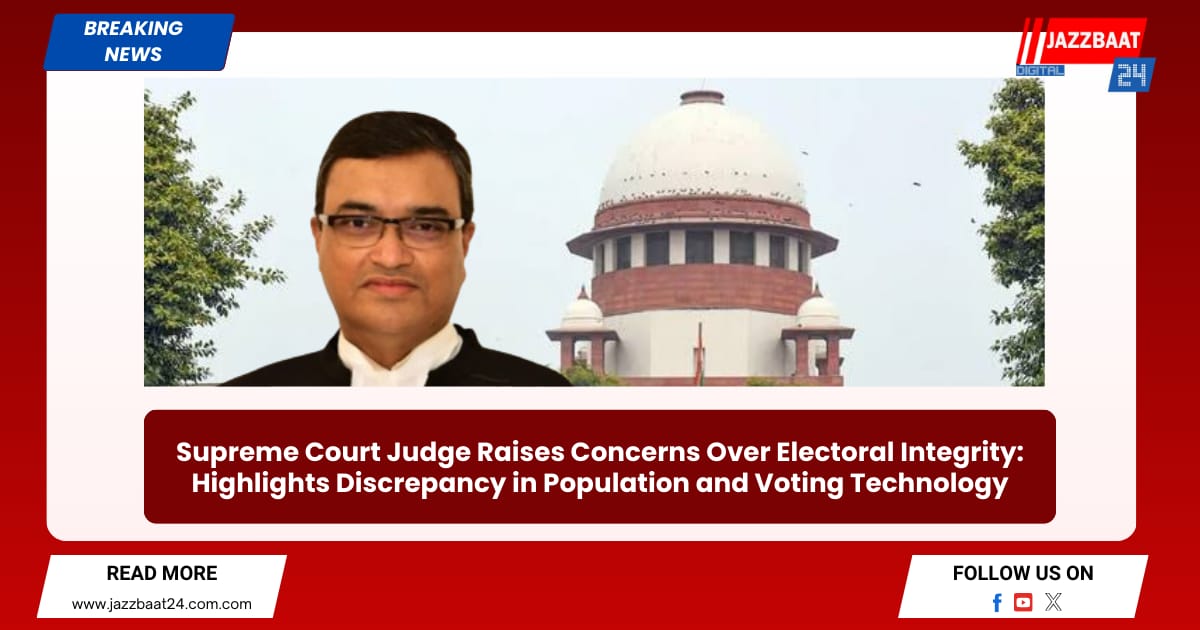The debate over the use of electronic voting machines (EVMs) versus traditional paper ballots has been reignited following remarks by a Supreme Court judge highlighting a significant population disparity between his home state and Germany. The judge's comments have brought renewed attention to concerns over electoral integrity and the adequacy of voting technology in ensuring fair and transparent elections.
During a hearing on a case related to the use of EVMs in elections, the Supreme Court judge cited statistics indicating that the population of his home state exceeds that of Germany, one of the largest and most populous countries in Europe. The judge's remarks underscored the sheer magnitude of the electorate in his state and raised questions about the efficacy of EVMs in accurately capturing the will of the people.
The judge's statement has reignited the longstanding debate over the merits of EVMs versus traditional paper ballots in electoral processes. Proponents of EVMs argue that they offer greater efficiency, speed, and accuracy in tallying votes, thereby reducing the likelihood of errors and fraud. However, critics contend that EVMs are susceptible to tampering and manipulation, raising concerns about the sanctity of the electoral process.
The judge's concerns echo those raised by various political parties and civil society groups, who have long called for greater transparency and accountability in the electoral process. Allegations of EVM tampering and malfunction have cast a shadow of doubt over the credibility of election results in the past, fueling demands for a return to paper ballots or the implementation of additional safeguards to ensure the integrity of electronic voting systems.
The debate over the use of EVMs versus paper ballots is not unique to India but has global implications for democracy and electoral governance. Countries around the world grapple with similar questions about the reliability and security of voting technology, with varying approaches and solutions adopted to address concerns and safeguard the democratic process.
As the Supreme Court considers the merits of the case and deliberates on potential reforms to the electoral system, the judge's remarks serve as a timely reminder of the need for vigilance and diligence in upholding the principles of democracy and ensuring the integrity of elections. The outcome of the case could have far-reaching implications for electoral practices in India and beyond, shaping the future of democracy in the digital age.
